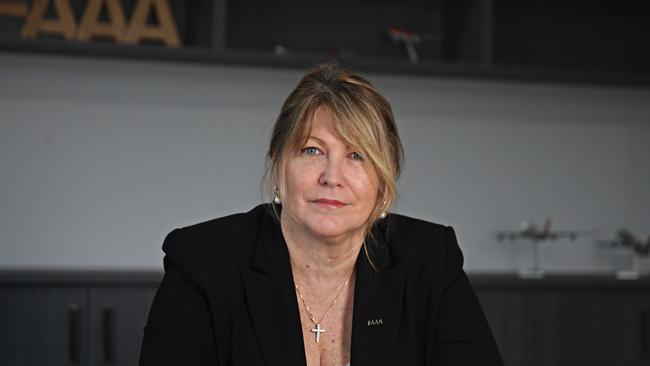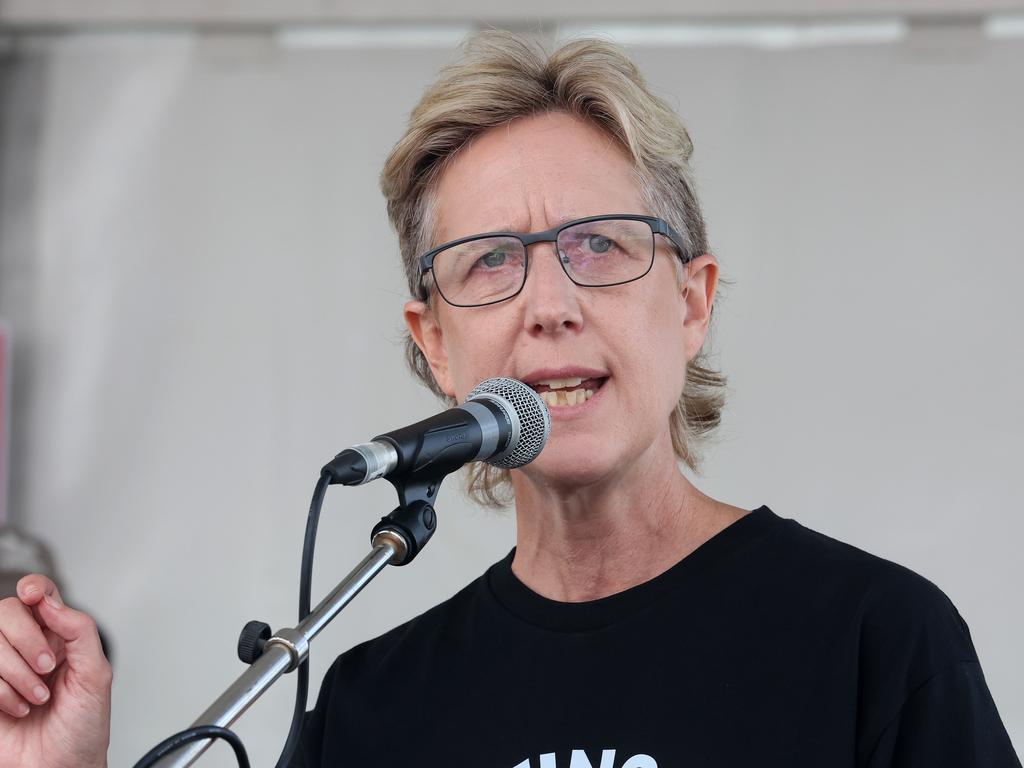Flight attendants launch same job, same pay action against Qantas
The union will apply to Fair Work to lift the wages of indirectly employed cabin crew members.

The flight attendants union will launch legal action against Qantas, seeking to use Labor’s same job, same pay laws to lift the wages of indirectly employed cabin crew members who, it says, are paid significantly less than directly employed colleagues doing the same work.
Flight Attendants Association of Australia federal secretary Teri O’Toole said the union would apply this week to the Fair Work Commission for orders to increase the pay of Qantas cabin crew members employed through subsidiaries and labour hire companies in line with directly employed Qantas staff.
Ms O’Toole, who will formally unveil the action at the ACTU Congress in Adelaide on Wednesday, said the union would initially seek orders against two of the 17 companies used by Qantas, whose alleged exploitation of labour hire loopholes was cited by the government as a reason why the same job same pay laws were required.
“The public should be shocked to learn that no new cabin crew in Australia have been directly employed by Qantas Group since 2007,” Ms O’Toole said. “Instead, Qantas relies on subsidiary and other companies to employ cabin crew, many of which are casuals, for significantly less pay than if they were employed directly under the FAAA negotiated enterprise agreement.”
She said cabin crew employed under these subsidiary and external labour hire companies performed the exact same job as cabin crew employed directly by Qantas, without equal remuneration and pay for additional hours or overtime. “The arrangements rob cabin crew of hundreds of thousands of dollars a year across Australia, with the money flowing directly into Qantas’s massive yearly profits,” she said.
“In a cost-of-living crisis, cabin crew working for labour hire companies, some of which pay barely above the minimum wage under the Aircraft Cabin Crew Award 2020, can no longer afford to be treated as second-class citizens.”
Anthony Albanese will on Wednesday night address the ACTU Congress, which will debate a raft of policy resolutions including a call to ban companies using post-employment non-compete clauses after a worker has left their job, and a prohibition on companies applying them to workers who were not full-time.
The congress will call on unions to campaign for shorter working hours for the same pay, including a four-day week; pursue pay rises where companies win productivity gains from adopting artificial intelligence; and 10 days paid reproductive leave
The Mining and Energy Union in May secured the union movement’s first win under the same job same pay laws after Thiess agreed to directly employ 27 Hunter Valley labour hire coalminers, delivering them pay rises each of more than $30,000 a year.
The MEU is expected to soon launch legal action seeking same job same pay orders against BHP.
Ms O’Toole said it would provide evidence to the commission that the indirectly employed workers were paid less than direct Qantas workers. “They do more hours for less pay. If we look at our domestic colleagues, they get overtime payments for Saturdays, Sundays and unsociable hours,” she said. “Workers employed by the subsidiary companies get none of those payments.”
The union says labour hire cabin crew members get a base salary that is up to $2000 a year less than directly employed staff.
A Qantas spokesman said it was yet to see the application.






To join the conversation, please log in. Don't have an account? Register
Join the conversation, you are commenting as Logout